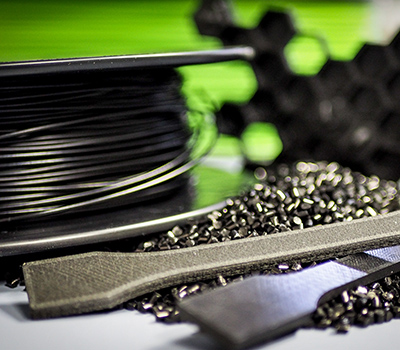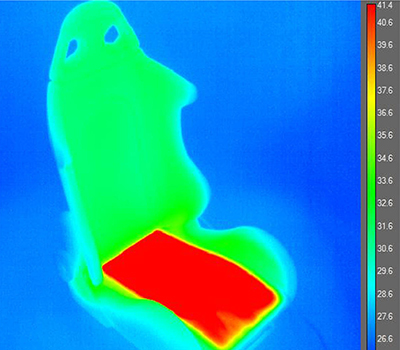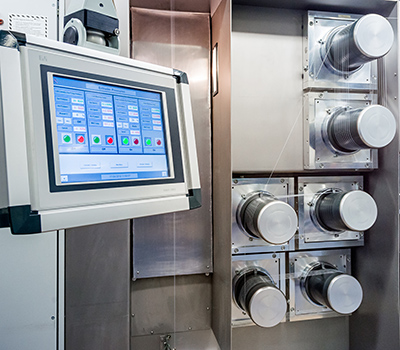The classic applications of polymer materials are in the area of construction applications, where it is primarily a matter of utilizing their mechanical and thermal properties while maintaining a low density. In recent years, so-called functional polymers have also become increasingly important, and this trend will continue in the future.
Of particular interest are polymer materials with specific, i.e. for example electrical, magnetic, optical, biologically relevant or other functional properties. On the one hand, these result directly from the molecular and supramolecular structures of the macromolecules of which they consist, i.e. they are "intrinsic" properties. On the other hand, suitable polymers can be modified by means of specific inorganic and/or organic additives to obtain functional polymers with these special, functional material properties.
Against this background, on the path "from material to system", technology-oriented research projects and R&D services are being carried out in particular in the following fields:
- Functional polymers and their composites with special electrical and/or optical properties,
- Organic and hybrid nanolayers and nanolayer systems
- Polymer-based electronic system components (polymer electronics).
Parallel to this, the research and service activities of the department are, on the other hand, focused on the topics of
- Additive and polymer syntheses for the chemical or physicochemical modification of, among other things, high-performance or "high-tech" polymers with high melting or processing temperatures by means of
- Functional, gradually accumulating through migration (gradient material) or
- Reactive, compatibilising polymer additives
- Generate specific surface or interface properties and/or special material functionalities
- Special material functionalities (chemical nanotechnology) and their
- Processability into films or mouldings as well as mono- and multi-filaments/fibers through the use of
- Melt spinning technologies
- with spinning speeds of up to 6,000 m/min (LOY, POY, HOY, FOY) and
- melt temperatures up to 480 °C, including the
- Bicomponent melt spinning technology
- Integration of new bio-based materials in sustainable development and manufacturing processes
for applications in the fiber and polymer processing industry (synthesis chemistry for tailor-made functional polymer design).


